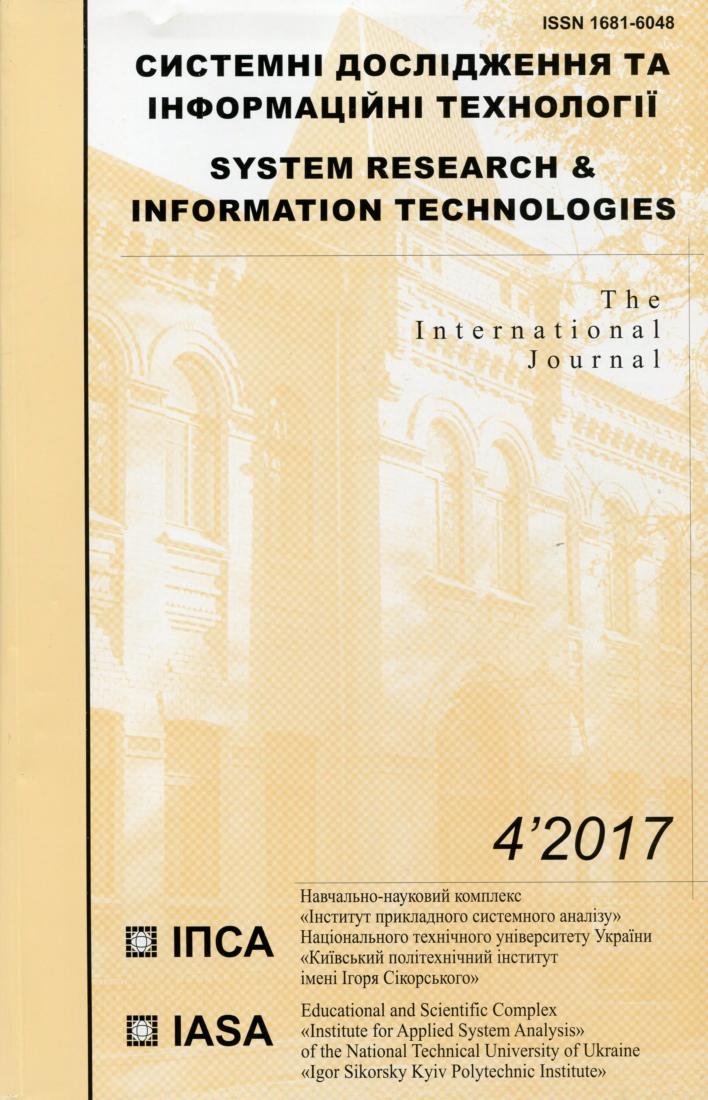Adaptive approximation of signals using pseudoinversion methods
DOI:
https://doi.org/10.20535/SRIT.2308-8893.2017.4.09Keywords:
adaptive approximation, dynamical system, optimization, pseudoinversion, iterative scheme, convergenceAbstract
In order to solve the important applied problems it is necessary to approximate the experimental data. In this paper, we consider the problem of adaptive data approximation and propose the general iterative scheme. This procedure has two cycles: internal and external. The external cycle provides changes to the basic functions structure, their extension if necessary. The internal cycle checks the approximation parameters during receiving the experimental data. The proposed scheme uses the representation of a pseudoinverse operator. Conditions for the convergence of the iterative scheme for approximating signals, which are based on Lyapunov stability theory are given.References
Ahiezer N.I. Lektsii po teorii approksimatsii / N.I. Ahiezer. — M. Nauka, 1965. — 407 s.
Evtushenko Ju.G. Metody reshenija ekstremal'nyh zadach i ih primenenie v sistemah optimizatsii / Ju.G. Evtushenko. — M.: Nauka, 1982. — 432 s.
Bublik B.N. Strukturno-parametricheskaja optimizatsija i ustojchivost' dinamiki puchkov / B.N. Bublik, F.G. Garaschenko, N.F. Kirichenko. — K.: Nauk. dumka, 1985. — 304 s.
Martynjuk D.I. Lektsii po kachestvennoj teorii raznostnyh uravnenij / D.I. Martynjuk. — K.: Nauk. dumka, 1972. — 246 s.
Garaschenko O.F. Ob odnom metode posledovatel'nogo postroenija matrits ortogonal'nyh preobrazovanij / O.F. Garaschenko , N.F. Kirichenko // Problemy upravlenija i informatiki. — 2005. — № 1. — S. 75–87.
Garaschenko F.G. Adaptivnye modeli approksimatsii signalov v strukturno-parametricheskih klassah funktsij / F.G. Garaschenko, O.S. Degtjar, O.F. Shvets' // Problemy upravlenija i informatiki. — 2011. — № 2. — S. 69–77.

